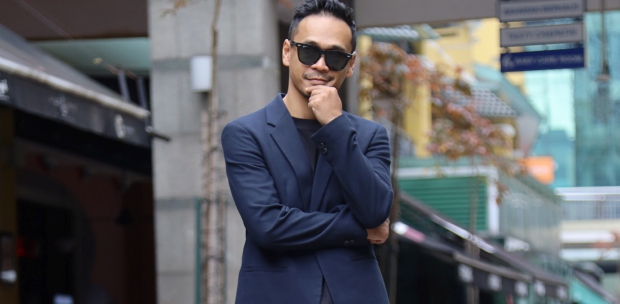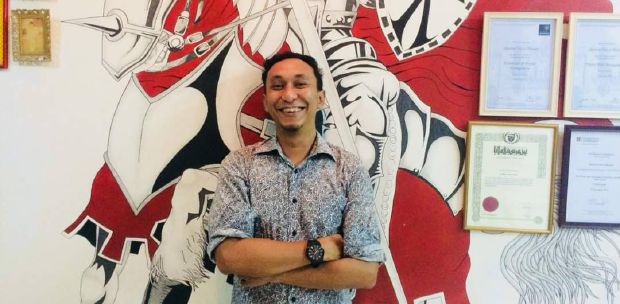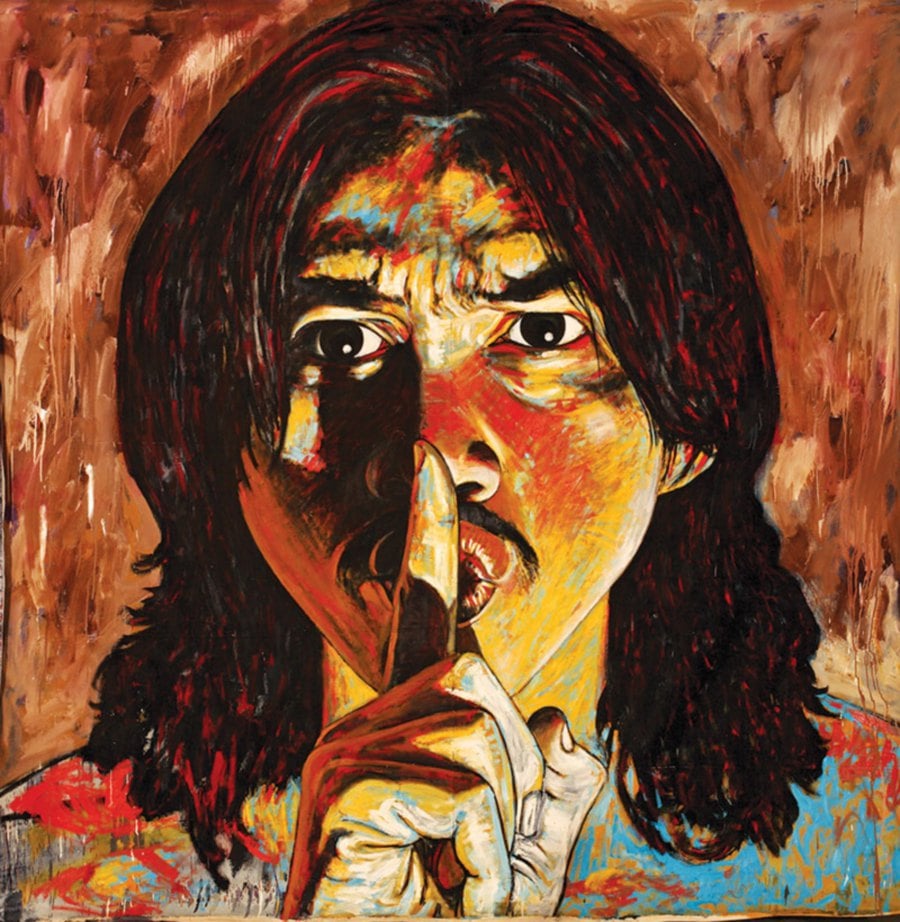
Along the years I’ve often wondered what happened to Fuad. The 49-year-old celebrated artist had seemed to drop off the face of the earth. Ahmad Fuad Osman — better known as Fuad — is no stranger to the international art circles. His much-acclaimed works have found their homes in institutions such as the National Visual Art Gallery and Petronas Gallery Malaysia; Tacheles Berlin, Germany; The Seoul Metropolitan Art Museum, Korea; Singapore Art Museum; Gertrude Art Centre, Melbourne, Australia; Guangdong Museum of Art China; Yokohama Museum of Art, Japan; Manes Gallery, Czech Republic; Red Mill Gallery, Vermont USA, and many other galleries and museums.
Born in 1969, the artist left his hometown of Baling, Kedah in 1987 to pursue a degree in Fine Arts at the-then Institut Teknologi Mara (now known as Universiti Teknologi Mara UiTM). It was there that he met fellow artists Bayu Utomo, Hamir Soib, Ahmad Shukri and Masnor Ramli — all of whom became part of the artist collective called Matahati, which played a pivotal role in the development of Malaysian contemporary art.
As one of Matahati’s founding members, Fuad’s art remains true to the spirit of the collective — exploring key socio-political issues while encouraging discourse without creative and conceptual constraints. Throughout his career as an artist, he was always drawn to communicate the multi-faceted and subtleties of the human condition.
The multidisciplinary artist was back in Kuala Lumpur for Primitive, his sixth solo exhibition at the A+ Works of Art gallery in Sentul. He presented seven evocative works for his 1st solo exhibition since 2007 — a collection of works spanning 15 years, from 2003 to 2018. The exhibition ended yesterday.
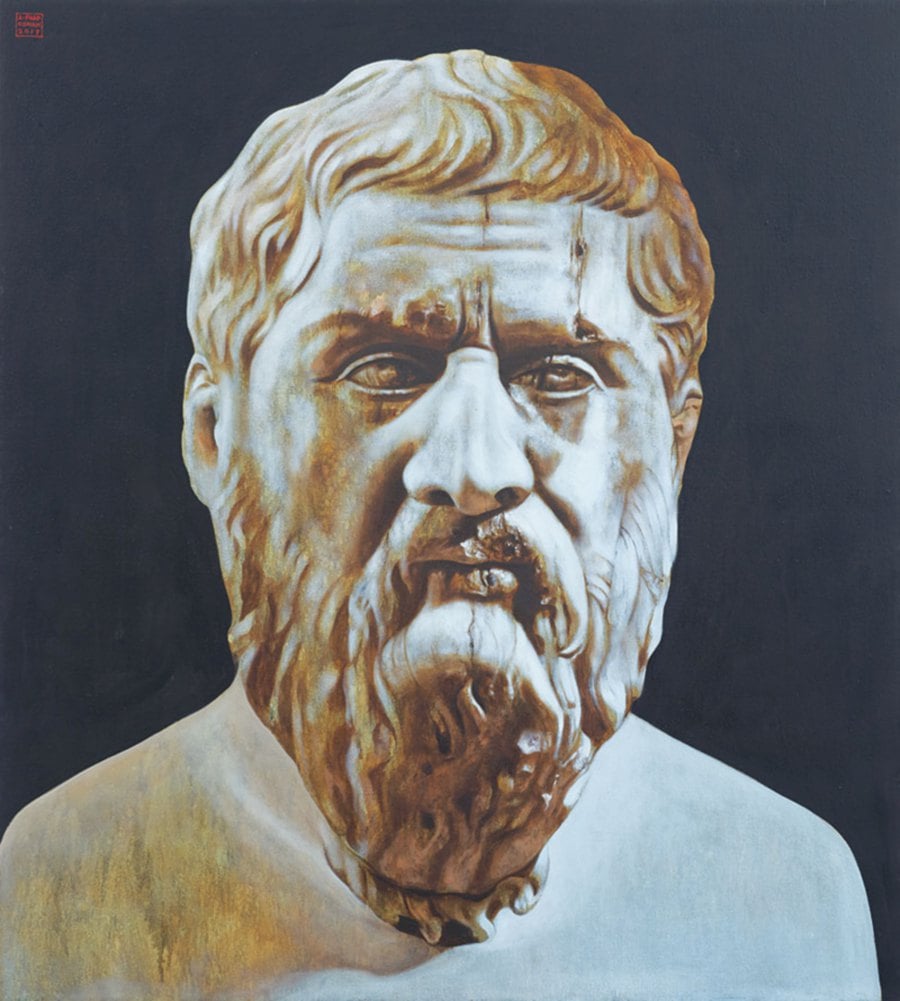
AN ARTIST EMERGENCE
At the Singapore Biennale in 2016, the artist emerged after being under the radar for almost a decade, with an installation secretly tucked away at the Asian Civilisation Museum. At the time of the press junket, Fuad’s work, we were informed, wasn’t yet ‘fully-available’.
I wasn’t ready to give up. Not when it comes to an artist whose body of work never failed to amaze me. Like a junkie with severe withdrawal symptoms, I doggedly pursued my one singular lead on Fuad’s emergence and it finally paid off.
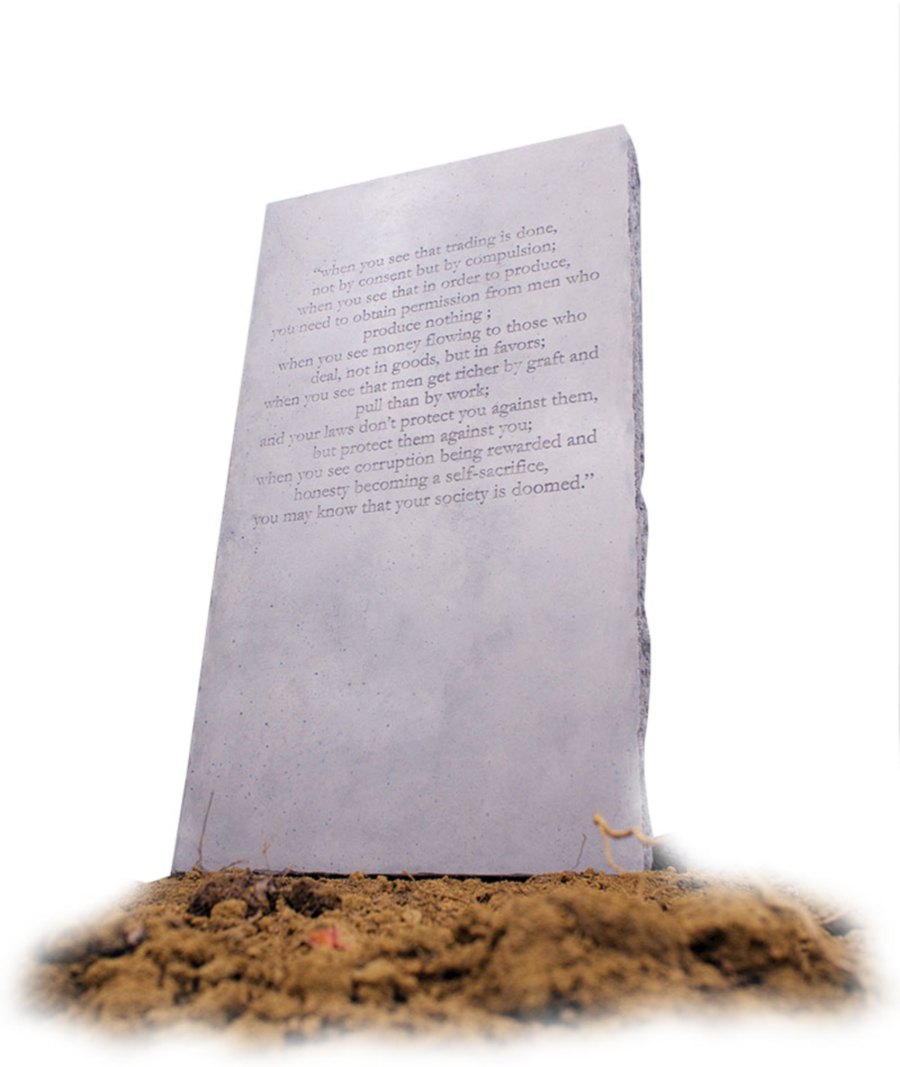
There standing before me was the Enrique de Malacca Memorial Project — a museological shrine to Enrique, known by his other monikers Henry the Black and Panglima Awang. Comprising a single channel video installation replete with oil paintings on canvas, fibreglass and resin castings, old parchments, maps and prints, 16th century Portuguese coins, 16th century Portuguese cannon and bullets, Ming ceramics, old Malay daggers and spears, carved whale and marlin’s bones, wall text, rosary beads and paternoster, iPads, replicas of 16th century Malay and Spanish sailors’ clothes and other found objects — Fuad was back!
This was the torment I missed so much! And now that Fuad had returned to Kuala Lumpur after a long hiatus, I was ready to get my fix again and submerge myself in his breathtaking but rather disturbing world.
Primitive opened with a painting of ancient Greek philosopher Plato, accompanied with an acrylic laser-cut quote: “Strange times are these in which we live when old and young are taught falsehoods in school and the person that dares to tell the truth is at once called a lunatic and fool”.
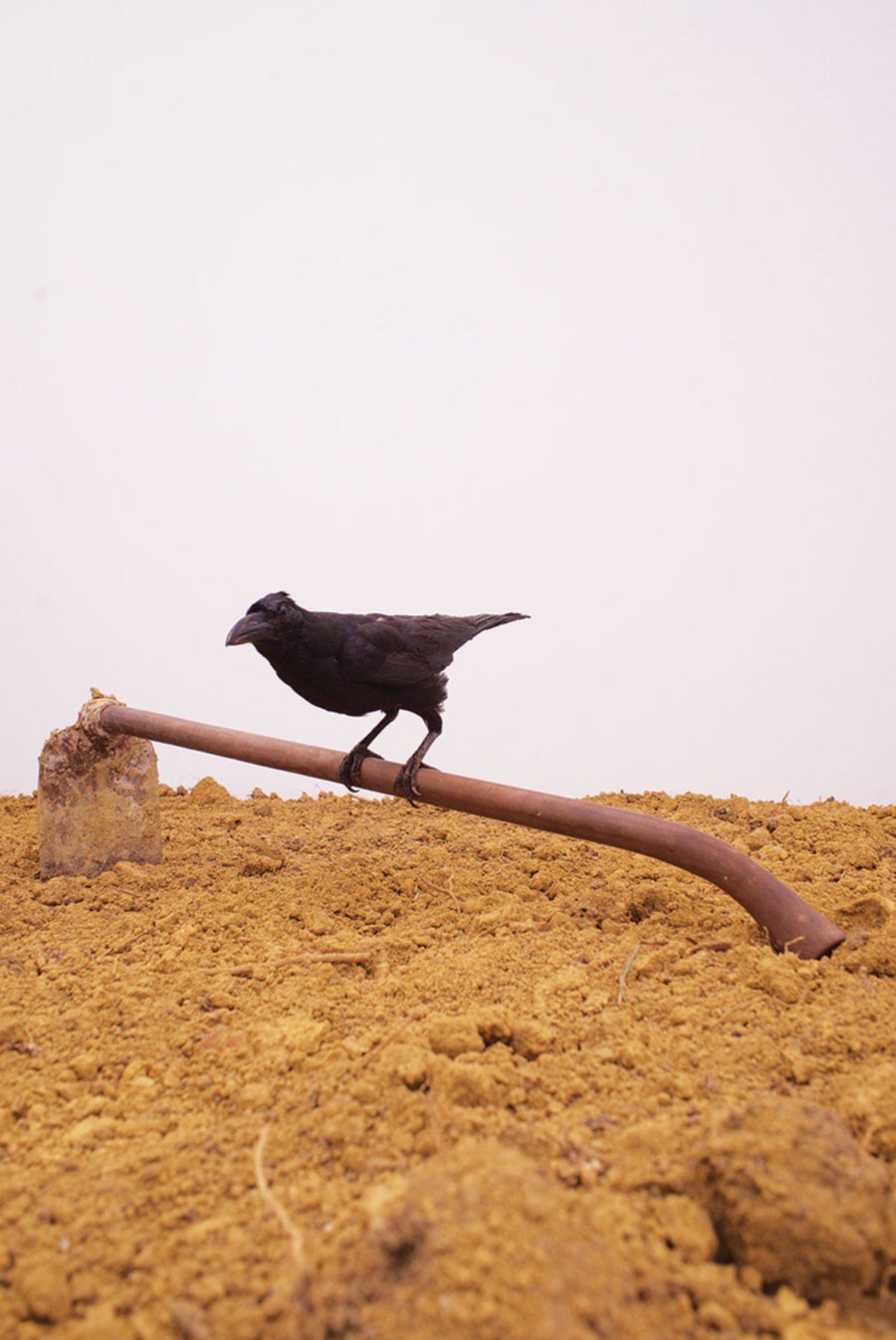
And enter Hell we do, with the installation The Birth of Tragedy. Inspired by the Quranic story of Qabil and Habil, where the first ever murder was witnessed by a crow, the large installation comprise a bed of russet earth, dirt and caked mud covering the unembellished floor; on a tarnished hoe, a taxidermy crow sits almost life-like, staring balefully at a ‘concrete’ slab which serves both as a sobriquet and monument. Author Ayn Rand’s quote from her book Atlas Shrugged piercingly intones: -
“when you see that trading is done,
not by consent but by compulsion;
when you see that to produce,
you need to obtain permission from men
who produce nothing;
when you see money flowing to those who
deal, not in goods, but in favours;
when you see men get richer by graft and
pull than by work;
and your laws don’t protect you against
them,
but protect them against you;
when you see corruption being rewarded
and honesty becoming a self-sacrifice,
you may know that your society is
doomed.”
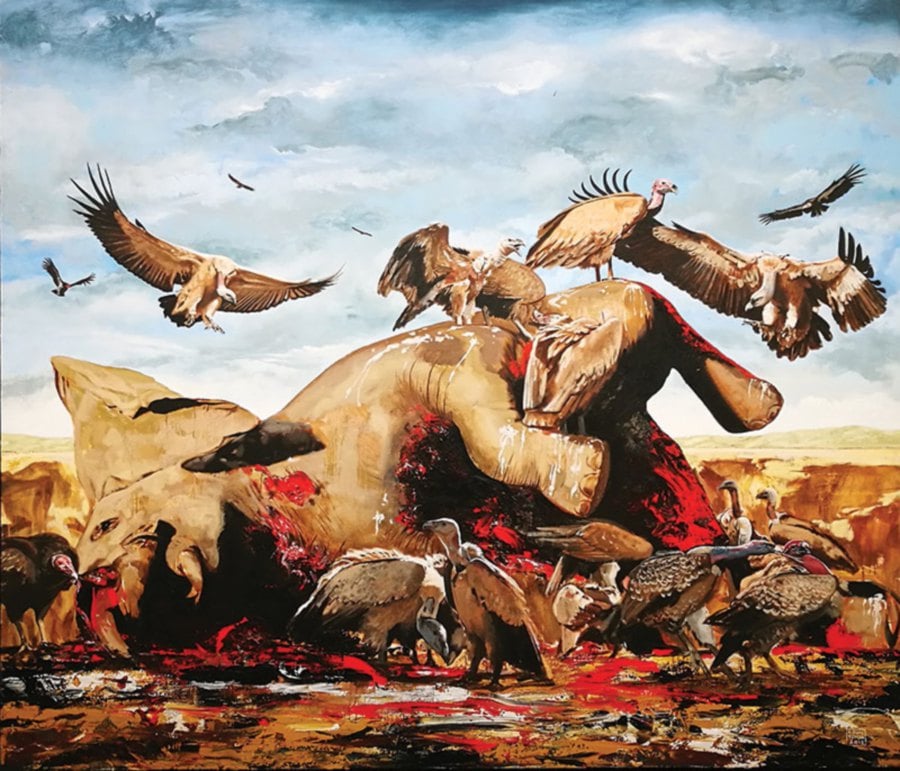
All that Is Solid Melts into Air was, at a glance, self-explanatory. The mighty elephant, grievously injured, almost succumbs to its fate as the scavenging birds of prey circle his huge mass with some already partaking in the rotted carmine flesh.
In spirit, Fuad’s work invokes Gustave Moreau’s 1866 Diomedes Devoured by Horses; four murderous stallions slaughtering King Diomedes as Hercules silently watches from the shadows. Similar to Moreau, Fuad’s use of colours acmes the condemned Goliath, and in cool contrast, the vultures feed almost serenely against a cerulean sky imperceptibly purified in light blotches.
Three Monkeys, See No Evil, Hear No Evil, Speak No Evil was simultaneously vicious and witty. Why chimpanzees instead of humans? Fuad quips with a chuckle: “There isn’t much that separates us from them, so why not?”
Looking thoughtful, the artist explains: “Primitive has lifted a massive pressure from my soul. I haven’t “disappeared” these last 10 years: I have been ‘soundlessly’ and consistently working. I detest being labeled a political artist, or labels of any kind. I’m privileged to be able to do works which stimulate all senses.”
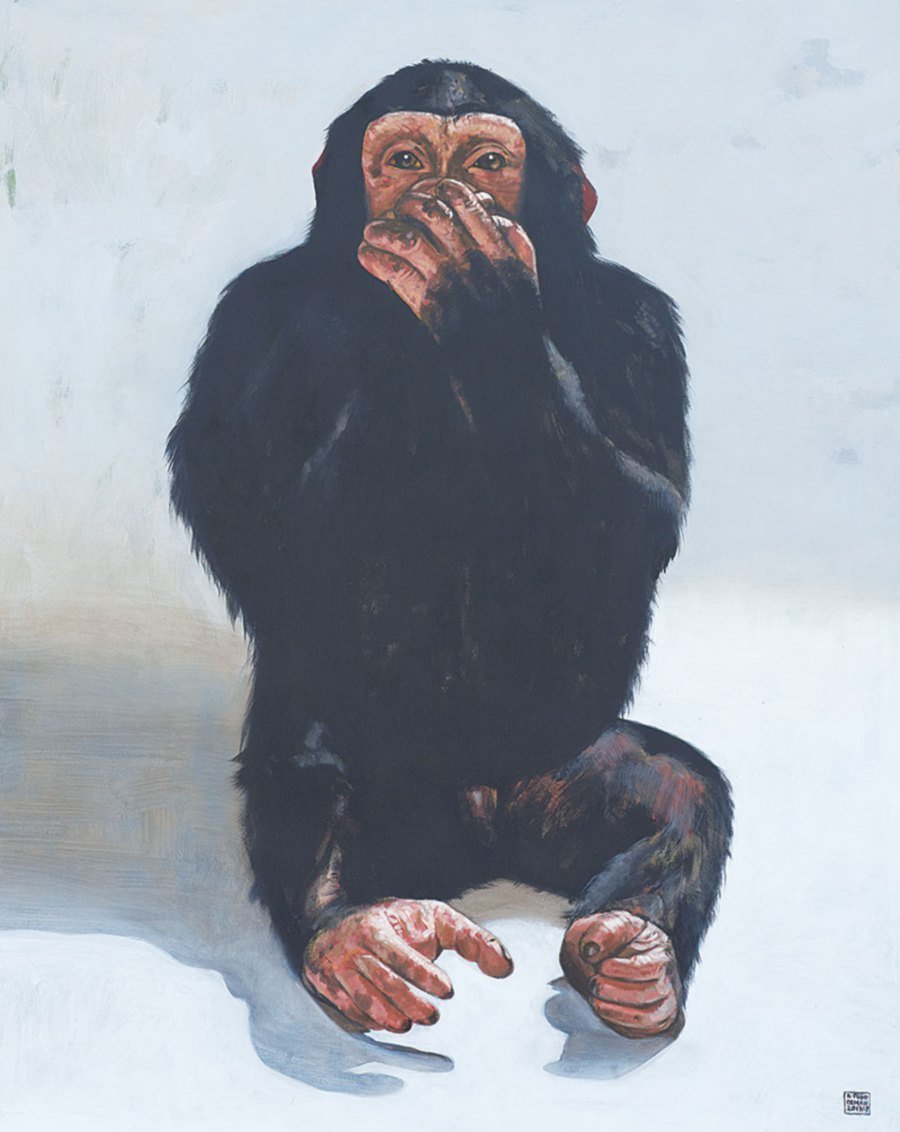
A brief pause ensues before he continues with a smile: “Primitive came about when I was sent the Plato quote on my phone. That was the catalyst for this show. Everything unraveled from that point. They’re still disentangling. They’re still unburdening.”
Primitive was a mirror of spectacularly indeterminate times; cultural schisms will undoubtedly result in a re-evaluation of art both current and of the past. Primitive has set a benchmark and will garner much traction for future shows. Fuad paints with the precision of a missile; creating works about a global pandemic. His articulacy has become more urgent, and it is remarkably timely.
With Primitive behind him, the artist quietly shares there will be a Part Deux. He has been called a political artist by some, given the fact that Fuad is perpetually drawn to explore the situations that we face in getting along with the ‘world’ and how these situations weigh upon us. “I rather leave the interpretation of my work to the viewers. As for me, I’d just like to be known as an artist,” says Fuad quietly. Who knows what the artist will come up in his next exhibition?
From American rock band The Doors, the definitive song of estrangement and being the outcast, People Are Strange from their second album, Strange Days, released in 1967: -
People are strange when you’re a stranger
Faces look ugly when you’re alone
Women seem wicked when you’re
unwanted
Streets are uneven when you’re down
When you’re strange
Faces come out of the rain
When you’re strange
No one remembers your name
When you’re strange
When you’re strange
When you’re strange
People are strange when you’re a stranger
Faces look ugly when you’re alone
Women seem wicked when you’re
unwanted
Streets are uneven when you’re down
When you’re strange
Faces come out of the rain
When you’re strange
No one remembers your name
When you’re strange
When you’re strange
When you’re strange


